Rulers
Index U
U Say (b. May 11, 1926, Kompong Trabek, Prey Veng province, Cambodia), defense minister of Cambodia (1973).
Uatioa, Reuben K(iraua) (b. 1924, Onotoa, Gilbert and Ellice Islands [now in Kiribati] - d. 1977), leader of government business of the Gilbert and Ellice Islands (1971-74).
Uba, Andy (Emmanuel Nnamdi) (b. Dec. 14, 1958, Uga village, Aguata community, Eastern region [now in Anambra state], Nigeria), governor of Anambra (2007).
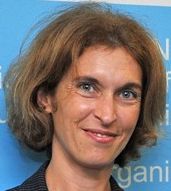
Ubach |
Ubach (Font), Maria (b. June 14, 1973, La Massana, Andorra), foreign minister of Andorra (2017- ). She was also ambassador to France and Portugal (2011-15) and to Belgium, the Netherlands, Luxembourg, and Germany (2015-17).
Uberaba, José Cesario de Miranda Ribeiro, visconde de (b. July 1, 1792, Vila Rica [now Ouro Preto], Minas Gerais, Brazil - d. May 7, 1856, Rio de Janeiro, Brazil), president of São Paulo (1835-36) and Minas Gerais (1837-38); son-in-law of Romualdo José Monteiro de Barros, barão de Paraopeba. He was made viscount in 1854.
Ubico y Castañeda, Jorge, byname Tata ("Daddy") (b. Nov. 10, 1878, Guatemala City, Guatemala - d. June 14, 1946, New Orleans, La.), president of Guatemala (1931-44). He enjoyed a distinguished military career, becoming a full general in 1922, and was governor of Alta Verapaz (1907-11) and Retalhuleu (1911-19), minister of development (1920) and war (1921-23), and first vice president (1922-23). In 1926, after the death of Pres. José María Orellana, the Progressive Party nominated him for the presidency but he was defeated. In 1930 he manoeuvred to be the joint candidate of the Liberals and Progressives and was swept into office. He established financial stability and political order, built an extensive network of roads, and modernized local administrations to include increased health and school facilities. His methods, however, were authoritarian and he sternly suppressed opposition. In 1932 he introduced Decree 1816, which exempted landowners from the consequences of any action taken to protect their goods or land, effectively legalizing the murder of indigenous farmers who resisted forced labour. In June 1935 his first term, due to expire in 1937, was extended to 1943 by a "plebiscite"; and in September 1941 a handpicked Constitutional Congress voted to extend his term of office until March 15, 1949. Despite some early Axis sympathies, during World War II he cemented a relationship with the Allies and expropriated German-owned property on U.S. insistence. His efficient but tyrannical rule ended when he was driven into exile by a democratic revolution following the revolt in El Salvador that deposed Maximiliano Hernández Martínez.
Ubilava, Yuza (Dzhakhoyevich) (b. 1941), chairman of the Council of Ministers of the Abkhaz A.S.S.R. (1978-87).
Ubiparip, Gojko (b. 1927 - d. Oct. 13, 2000, Belgrade, Serbia), chairman of the Executive Council of Bosnia and Herzegovina (1984-86).
Ucelay Sabina, Francisco Javier (b. April 17, 1944, La Laguna, Tenerife, Spain - d. Nov. 5, 2001, Santa Cruz, Tenerife), president of the Junta of Canarias (1982).
Uchaykin, Vasily (Semyonovich) (b. June 24, 1934, Simkino, Mordovian autonomous oblast, Russian S.F.S.R. [now Mordovia republic, Russia]), chairman of the Council of Ministers of the Mordovian A.S.S.R. (1978-91).
Uchibori, Masao (b. March 26, 1964), governor of Fukushima (2014- ).
Uchida, Yasuya (also called Kosai Uchida), in full Hakushaku (Count) Yasuya Uchida (b. Sept. 29, 1865, Higo province [now Kumamoto prefecture], Japan - d. March 12, 1936, Tokyo, Japan), foreign minister (1911-12, 1918-23, 1932-33) and acting prime minister (1921, 1923) of Japan. He was also minister to China (1901-06) and ambassador to Austria-Hungary (1907-09, also minister to Switzerland), the United States (1909-11), and Russia (1917-18). He was made baron in 1907, viscount in 1911, and count in 1920.
Uda Al-Haj bin Raja Muhammad, Raja Sir Tun (b. 1894, Kuala Langat, Selangor [now in Malaysia] - d. 1976), chief minister of Selangor (1949-53, 1954-55) and head of state of Penang (1957-67). He received a British knighthood in 1953 and the title Dato' Seri in 1967.
Udall, John H(unt) (b. Aug. 23, 1889, Snowflake, Ariz. - d. March 3, 1959, Mesa, Ariz.), mayor of Phoenix (1936-38).
Udall, (John) Nicholas (b. July 23, 1913, St. Johns, Ariz. - d. June 15, 2005, Chandler, Ariz.), mayor of Phoenix (1948-52); son of John H. Udall.
Udenhout, Wim, byname of Willem Alfred Udenhout (b. Sept. 29, 1937, Coronie district, Dutch Guiana [now Suriname]), prime minister (1984-86), foreign minister (1984-85), and finance minister (1985-86) of Suriname. He was ambassador to the United States and permanent representative to the OAS in 1989-97.
Udenwa, Achike (b. Oct. 20, 1948, Orlu [now in Imo state], Nigeria), governor of Imo (1999-2007).

Udovenko |
Udovenko, Hennadiy (Yosypovych) (b. June 22, 1931, Krivoy Rog, Ukrainian S.S.R. [now Kryvyi Rih, Ukraine] - d. Feb. 12, 2013, Kiev, Ukraine), foreign minister of Ukraine (1994-98). He served as Kiev's representative at the United Nations (1985-92) and ambassador to Poland (1992-94) before he was appointed foreign minister in 1994 when Pres. Leonid Kuchma came to power. Udovenko won a seat in a parliamentary election on March 29, 1998, as a member of the moderate nationalist Rukh party and under Ukrainian law had to quit his cabinet post. He continued chairing the United Nations General Assembly until his one-year term in that post ended in September 1998. He was a candidate in the 1999 presidential election.
Udovikov, Mikhail (Dmitriyevich) (b. 1950), acting interior minister of Belarus (2000).
Udrzal, Frantisek (b. Jan. 3, 1866, Dolní Roven, Austria [now in Czech Republic] - d. April 24, 1938, Prague, Czechoslovakia [now in Czech Republic]), defense minister (1921-25, 1926-29) and prime minister (1929-32) of Czechoslovakia.
Uduaghan, Emmanuel (Eweta) (b. Oct. 22, 1954), governor of Delta (2007-10, 2011-15); son-in-law of Sunday Tuoyo.
Udugov, Movladi (Saidarbiyevich) (b. Feb. 9, 1962, Grozny, Chechen-Ingush A.S.S.R., Russian S.F.S.R.), foreign minister of Chechnya (1997-98). He was also information minister; though an extremely effective PR manager for the separatists during the first Chechen war of 1994-96, he was fired by Pres. Aslan Maskhadov in 1998 for his active support of religious radicals in Chechnya. In 1999 he created the Kavkazcenter.com Internet portal, which has since become the most powerful and outspoken news and propaganda resource for Chechen rebels, who largely frame their struggle in religious terms as a fight against infidels. In 2005 he was reinstated as information minister by Pres. Abdul-Khalim Sadulayev.
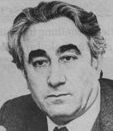
Udumyan |
Udumyan, Kamo (Babiyevich) (b. 1927, Berd, Armenian S.S.R. - d. Sept. 3, 2011, Moscow, Russia), foreign minister of the Armenian S.S.R. (1971-75). He was also culture minister of the Armenian S.S.R. (1967-72) and Soviet ambassador to Nepal (1975-79) and Luxembourg (1979-87).
Ueda, Kiyoshi (b. May 15, 1948), governor of Saitama (2003-19).
Ueki, Koshiro (b. Jan. 28, 1900, Fukui prefecture, Japan - d. March 11, 1980), finance minister of Japan (1972). He was also justice minister (1960-62, 1971).
Ueltschi, Ernesto (Arturo) (b. April 1, 1922, San Rafael, Mendoza, Argentina - d. July 6, 2014, Buenos Aires, Argentina), governor of Mendoza (1958-61).
Ufimtsev, Nikolay (Ivanovich) (b. 1888 - d. [executed] June 22, 1938), executive secretary of the Communist Party committee of Crimea (1922-24). He was also chairman (1919) and executive secretary (1920-21, 1921-22) of the party committee of Yekaterinburg province.
Ugaki, Kazushige (b. June 1868, Okayama prefecture, Japan - d. April 30, 1956, Tokyo, Japan), governor-general of Korea (1927 [acting], 1931-36) and foreign minister of Japan (1938). He was also minister of the army (1924-27, 1929-31) and overseas affairs (1938).
Ugarte (Lavalle), Marcelino (Germán Manuel) (b. May 28, 1855, Buenos Aires, Argentina - d. Aug. 6, 1929, Buenos Aires), governor of Buenos Aires (1902-06, 1914-17); son of Marcelino Ugarte (Seide).
Ugarte (Seide), Marcelino (Trinidad) (b. June 4, 1822, Buenos Aires, Argentina - d. Sept. 1, 1872), foreign minister of Argentina (1867-68).
Ugarte, Rafael de, Bolivian minister of finance and industry (1932) and interior and justice (1933-34).
Ugarteche (y Posadas), Juan Antonio (b. June 12, 1804, Salta, Río de la Plata [now Argentina] - d. 1871, Valparaíso, Chile), prime minister and war and navy minister of Peru (1865).
Ugarteche Jiménez, Manuel (b. May 22, 1872, Arequipa, Peru - d. March 27, 1943, Lima, Peru), finance minister (1935-36, 1938-39) and prime minister (1939) of Peru; cousin of Manuel Prado y Ugarteche.
Uggla, Johan Gustaf friherre (b. July 25, 1734 - d. May 23, 1798, Ölserud socken, Värmland, Sweden), governor of Värmland (1779-93).
Uggla, Karl-Lennart (b. April 17, 1928, Hardemo, Örebro, Sweden - d. Nov. 11, 2011), governor of Västmanland (1985-89).
Ugglas, (Curt) Gustaf friherre af (b. Sept. 14, 1820, Forsmark socken, Stockholm county, Sweden - d. Feb. 20, 1895, Stockholm, Sweden), governor of Östergötland (1858-67) and Stockholm city (1874-88) and finance minister of Sweden (1867-70); grandson of Samuel greve af Ugglas; son-in-law of Magnus Fredrik Ferdinand greve Björnstjerna.

M. af Ugglas | 
G.F. Ugolini | 
M.A. Ugolini |
Ugglas, (Märta) Margaretha (friherrinna) af, née Stenbeck (b. Jan. 5, 1939, Stockholm, Sweden), foreign minister of Sweden (1991-94); great-granddaughter-in-law of Gustaf friherre af Ugglas.
Ugglas, Samuel greve af, originally Samuel Ugla (b. May 3, 1750, Hedemora, Kopparberg [now Dalarna], Sweden - d. April 6, 1812, Stockholm, Sweden), governor of Stockholm (1788-1802) and Stockholm city (1797, 1800). He was ennobled under the name af Ugglas in 1772 and was made friherre (baron) in 1796 and greve (count) in 1799.
Ugolini, Giovanni Francesco (b. Feb. 28, 1953, Pont-à-Vendin, France), captain-regent of San Marino (2002, 2010-11).
Ugolini, Massimo Andrea (b. July 26, 1978), captain-regent (2016) and justice minister (2020- ) of San Marino.
Ugur, (Mustafa) Necdet (b. 1923, Mecitözü, Çorum, Turkey - d. Sept. 27, 2004, Istanbul, Turkey), interior minister of Turkey (1977). He was also minister of national education (1978-79).

Ugyen |
Ugyen Wangchuk (O-rgyan dBang-phyug) (b. 1861 - d. Aug. 21, 1926, Bumthang, Bhutan), king of Bhutan (1907-26). He became penlop (governor) of Tongsa in 1883 and on Dec. 17, 1907, was elected the first hereditary king (Druk Gyalpo) of Bhutan. By uniting the country and establishing a central authority, he brought peace and stability to the country and laid the foundation for the emergence of modern Bhutan.
Uher, Jindrich (b. June 18, 1911, Predmerice nad Labem, Austria [now in Czech Republic] - d. July 26, 1985, Prague, Czechoslovakia [now in Czech Republic]), a deputy premier of Czechoslovakia (1953-54). He was also minister of agriculture (1953-54), food industry (1954-61), and internal trade (1961-68) and ambassador to Kenya (1971-75).
Uhl, Edwin F(uller) (b. Aug. 14, 1841, Rush, near Avon Springs, N.Y. - d. May 17, 1901, near Grand Rapids, Mich.), acting U.S. secretary of state (1895). He was also ambassador to Germany (1896-97).
Uhomoibhi, Martin (Ihoeghian) (b. Nov. 3, 1954, Nigeria), acting foreign minister of Nigeria (2010). He was also ambassador to Switzerland (2007-10).
Uhrich, John M(ichael) (b. June 7, 1877, Formosa, Ont. - d. June 15, 1951, Regina, Sask.), lieutenant governor of Saskatchewan (1948-51).
Uica, Nicolae (b. Feb. 5, 1877, Vlasca county, Romania - d. 1940), war minister of Romania (1933-34).
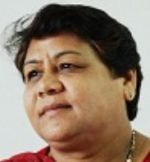
Uikey |
Uikey, Anusuiya (b. April 10, 1957, Rohanakala, Chhindwara district, Madhya Pradesh, India), governor of Chhattisgarh (2019-23) and Manipur (2023- ).
Uitenhage de Mist, Jacob Abraham, until 1817 Jacob Abraham de Mist (b. April 20, 1749, Zaltbommel, Netherlands - d. Aug. 3, 1823, Voorburg, Netherlands), president of the National Assembly of the Batavian Republic (1797) and governor of Cape Colony (1803-04). The town of Uitenhage (now Kariega, Eastern Cape, South Africa) was named after him.
Uka, Rexhep, Albanian politician. He was a deputy prime minister and minister of agriculture and food (1992-93) and minister without portfolio, responsible for local government affairs (1993-94).
Ukaegbu, Emmanuel (Uwakwe), administrator of Anambra (1998-99).
Ukeiwé, Dick (b. Dec. 13, 1928, Lifou, Îles Loyauté, New Caledonia - d. Sept. 3, 2013), vice president of the Government Council (1979-82), president of the government (1984-85), and president of the Executive Council (1985-88) of New Caledonia.
Ukin, Kenzhebek (Ukinovich) (b. July 26, 1940, Koytas, Vostochno-Kazakhstan oblast, Kazakh S.S.R.), chairman of the Executive Committee (1987-90) and head (1992-93) of Kostanay oblast. He was also first secretary of the party committee of Turgay oblast (1990-91).
Ukiwe, (Okoh) Ebitu (b. 1940, Abriba [now in Abia state], Nigeria), governor of Niger (1977-78) and administrator of Lagos (1978-79). Commodore Ukiwe was chief of general staff of Nigeria in 1985-86.
Ukpo, (Stephen) Anthony (b. July 16, 1947, Okpoma [now in Cross River state], Nigeria - d. Sept. 6, 2021, Calabar, Cross River), governor of Rivers (1986-88). He was also Nigerian minister of information (1985-86).
Ulaan, Chultem(iyn) (b. April 22, 1954, Baruun-Urt, Mongolia), finance minister (2000-04, 2007-08), acting prime minister (2004), and deputy prime minister (2004-06) of Mongolia.
Ulanhu, original name Yunze (Wade-Giles Yün-tse) (b. December 1906, Tumd Left Banner, Suiyuan province [now part of Nei Mongol], China - d. Dec. 8, 1988, Beijing, China), Chinese politician. He was a highly visible promoter of Mongolian rights from 1925, when he took part in the first Congress of the People's Revolutionary Council of Inner Mongolia, until his retirement in April 1988. He was at first dedicated to Inner Mongolian independence from Nationalist-ruled China. He later fought against the Japanese occupation of Inner Mongolia; sought improved relations with Outer Mongolia, the Mongolian People's Republic; and conducted underground work for the Communist Party of China. After the Communist victory in 1949, Ulanhu held a series of posts in the central government, but in 1967, at the height of the Cultural Revolution, he was branded a "ruler in an independent kingdom" and was stripped of office. After his rehabilitation in 1973, he served on the party Central Committee and from 1977 in the Political Bureau. From 1975 to 1983 and from April to December 1988, he was a deputy chairman in the legislature, the National People's Congress. He was vice president of China in 1983-88.
Ulate Blanco, Otilio, in full Luis Emilio Rafael de la Trinidad Otilio González Ulate y Blanco (b. Aug. 25, 1891, Alajuela, Costa Rica - d. Oct. 27, 1973, San José, Costa Rica), president of Costa Rica (1949-53). He was an unsuccessful presidential candidate in 1962 and served as ambassador to Spain (1970-71).
Ulbashev, Ismail (Lokmanovich) (b. April 23 [April 10, O.S.], 1914, Kashkhatau, Terek oblast [now in Kabardino-Balkariya republic], Russia - d. ...), chairman of the Presidium of the Supreme Soviet of the Kabardino-Balkar A.S.S.R. (1941-44).
Ulbashev, Kellet (Elmurzayevich) (b. 1884, Shaurdat, Terek oblast [now in Kabardino-Balkariya republic], Russia - d. Oct. 15, 1938, western Siberia, Russian S.F.S.R.), chairman of the Executive Committee of the Kabardino-Balkar autonomous oblast (1930-34).
Ulbrich, Werner (b. Sept. 28, 1939, Neumarkt, Schlesien, Prussia, Germany [now Sroda Slaska, Poland]), Regierungsbevollmächtigter of Suhl (1990).
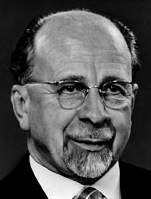
Ulbricht |
Ulbricht, (Ernst Paul) Walter (b. June 30, 1893, Leipzig, Germany - d. Aug. 1, 1973, Gross Dölln [now part of Templin], East Germany), German politician. He joined the Social Democratic Party (SPD) in 1912 and after military service in World War I became an organizer of the new German Communist Party (KPD) in 1919. In 1923 he became a member of the party's Central Committee and in 1929 he was elected to the Politburo and became district leader for Berlin-Brandenburg. He was a member of the Landtag of Saxony in 1926-29 and of the Reichstag from 1928. After the Nazis' accession to power in 1933, he fled to France. He served as an agent of the KPD and the Comintern in Paris and Moscow and as a political commissar with the International Brigades in the Spanish Civil War (1936-39). He moved to Moscow in 1938 and from 1941 worked with German prisoners of war, joining the National Committee for a Free Germany. Returning to Germany on April 30, 1945, he helped reestablish the KPD and played a leading role in the April 1946 merger in the Soviet occupation zone of the KPD and the SPD into the Socialist Unity Party (SED). On the formation of the German Democratic Republic (October 1949), he became deputy prime minister. The 3rd SED congress elected him to the new post of general secretary in 1950, making him the effective ruler of East Germany; in 1953 the title was changed to first secretary. When Pres. Wilhelm Pieck died in 1960, the presidency was abolished and a Council of State formed instead, with Ulbricht as its chairman. In 1961 he sponsored the erection of the Berlin Wall to halt an exodus of skilled professionals. This allowed an economic and political consolidation in subsequent years. His disapproval of the Soviet policy of improving relations with West Germany after 1969 led to his resignation as SED first secretary in 1971, but he retained his position as head of state until his death.
Uldzhabayev, Tursun(bay Uldzhabayevich) (b. May 1, 1916, Kuruk village, near Khodzhent, Russia [now Khujand, Tajikistan] - d. May 31, 1988), chairman of the Council of Ministers (1955-56) and first secretary of the Communist Party (1956-61) of the Tadzhik S.S.R. He was also first secretary of the party committee of Leninabad oblast (1952-54).
Ulfeldt, Anton Corfiz Graf (b. June 15, 1699, Kronstadt, Hungary [now Brasov, Romania] - d. Dec. 31, 1769, Vienna, Austria), foreign minister of Austria (1742-53). He was also minister to the Netherlands (1734-39) and ambassador to the Ottoman Empire (1740-41).
Ulfsparre af Broxvik, Åke friherre (b. 16... - d. July 9, 1701, Växjö, Kronoberg, Sweden), governor of Kronoberg (1687-1701).
Ulfsparre af Broxvik, Fabian (b. Jan. 7, 1767, Kyrkefalla socken [now part of Tibro municipality], Skaraborg [now in Västra Götaland], Sweden - d. Sept. 9, 1842, Stockholm, Sweden), governor of Södermanland (1804-15).

Ulianovschi |
Ulianovschi, Tudor (b. May 26, 1983), foreign minister of Moldova (2018-19). He was also chargé d'affaires in Qatar (2013-14) and ambassador to Switzerland and Liechtenstein (2016-18).
Ulibarri Bilbao, Eduardo (b. Feb. 3, 1952, Remedios, Cuba), Costa Rican diplomat. He was permanent representative to the United Nations (2010-14).
Ullmann, (Johan Christian) Viggo (b. Dec. 21, 1848, Christiania [now Oslo], Norway - d. Aug. 30, 1910, Vestre Aker [now part of Oslo], Norway), governor of Bratsberg amt (1902-10). He was also chairman of Norway's Liberal Party (1893-94, 1898-1900).
Ulloa, Néstor Jésus (b. Feb. 15, 1924, Salta, Argentina - d. June 29, 1988, San Salvador de Jujuy, Argentina), governor of Jujuy (1982-83).
Ulloa, Roberto (Augusto) (b. March 1, 1924, Pigüé, Buenos Aires province, Argentina - d. Dec. 7/8, 2020, Buenos Aires, Argentina), governor of Salta (1977-83, 1991-95).
Ulloa Donaire, José Ángel (b. 1903, Comayagua, Honduras - d. Feb. 14, 1989, Tegucigalpa, Honduras), foreign minister of Honduras (1965). He was also ambassador to the Netherlands (1959-61) and Mexico (1961-63).
Ulloa Elías, Manuel (b. Nov. 12, 1922, Lima, Peru - d. Aug. 9, 1992, Madrid, Spain), finance minister (1968, 1980-83) and prime minister (1980-83) of Peru; son of Alberto Ulloa Sotomayor. He was also president of the Senate (1984-85).
Ulloa Sotomayor, Alberto (b. Dec. 20, 1892 - d. Feb. 26, 1975), foreign minister of Peru (1936). He was also ambassador to Chile (1952-54).
Ullrich, Josef (b. March 19, 1897, Pilsen, Austria [now Plzen, Czech Republic] - d. June 25, 1967, Prague, Czechoslovakia [now in Czech Republic]), Czechoslovak diplomat. He was ambassador to the United Kingdom (1951-55) and permanent representative to the United Nations (1955-58).
Ullrich, Werner (b. March 24, 1928, Hohenleipisch, Prussia [now in Brandenburg], Germany - d. May 12, 1999, Gera, Thüringen, Germany), chairman of the District Council of Gera (1983-90).

Ullsten |
Ullsten, Ola, byname of Stig Kjell Olof Ullsten (b. June 23, 1931, Teg, Umeå, northern Sweden - d. May 28, 2018), prime minister of Sweden (1978-79). He was active as a social worker and in the temperance movement from 1952 to 1957. In 1962 he became chairman of the Liberal Party Youth League, and during 1962-64 he was an editorial writer for the Stockholm Dagens Nyheter. He was elected to the Riksdag (parliament) in 1964. Foreign affairs was his principal interest: as far back as 1960 he was attached to John F. Kennedy's presidential election campaign on a foreign affairs study grant. In 1976 he became minister for international development. As such he was prime mover in Sweden's decision in 1977 to write off more than $208 million owed to the country by some of the world's poorest nations. In 1977 he additionally became minister for immigration, and in March 1978 he succeeded to the leadership of the small Liberal Party (Folkpartiet) and was appointed deputy prime minister in the centre-right government of Thorbjörn Fälldin. When the coalition collapsed because of disagreements about nuclear policy in October 1978, Ullsten formed a Liberal minority government. Later he became foreign minister (1979-82); after leaving the party leadership in 1983, he served as ambassador to Canada (1984-89) and Italy (1989-96).
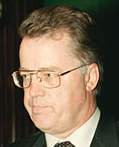
G. Ulmanis |
Ulmanis, Guntis (b. Sept. 13, 1939, Riga, Latvia), president of Latvia (1993-99); grandnephew of Karlis Ulmanis.

K. Ulmanis |
Ulmanis, Karlis (Augusts Vilhelms) (b. Sept. 4, 1877, Berze, Russia [now in Latvia] - d. Sept. 20, 1942, Krasnovodsk, Turkmen S.S.R. [now Turkmenbashi, Turkmenistan]), prime minister (1918, 1919-21, 1925-26, 1931, 1934-40) and president (1936-40) of Latvia. During the 1905 Russian revolution, he promoted Latvia's movement for political autonomy. After the defeat of the revolution he was forced to go into exile in the United States. Having been granted an amnesty by the Russian government, he returned to Latvia in 1913. Shortly after the Russian revolution of 1917, he founded the Latvian Farmers' Union, claiming Latvia's independence. With other Latvian leaders he formed a Latvian National Council which proclaimed independence (Nov. 18, 1918) and appointed him prime minister. The new nation had to defend itself not only against Russian and Latvian Communists, but also against German forces. With a Latvian army formed by Gen. Janis Balodis, supported at times by French and British naval forces and Polish troops, he cleared the country of opposition and organized the election of a constituent assembly which convened at Riga on May 1, 1920. Peace with Russia was concluded on August 11. He began his last premiership in March 1934, at a time of great political tension created by right-wing nationalists and a nazified German minority. On May 15, he suspended the Saeima (parliament) and all political parties, instituted an authoritarian regime, and introduced the corporative system of chambers. Meanwhile, a revised constitution was in the making. In 1936 he additionally became president of the republic. He had also been minister of supplies (1918-19, 1919), agriculture (1918, 1919), defense (1919-20), and foreign affairs (1926, 1931, 1934-36). In June 1940, pressured by overwhelming Soviet military forces, he resigned as prime minister, and a Soviet-friendly government was formed. He was removed as president on July 21 and then arrested and deported to the U.S.S.R.
Ulrica Eleonora (b. Jan. 23, 1688, Stockholm, Sweden - d. Nov. 24, 1741, Stockholm), queen of Sweden (1719-20); sister of Carl XII; wife of Fredrik I.
Ulrich, Bror Ludvig (b. March 6, 1818, Stockholm, Sweden - d. Sept. 11, 1887), governor of Saint-Barthélemy (1868-78); brother of Fredrik Carl Ulrich.
Ulrich, Fredrik Carl (b. 1808 - d. Aug. 11, 1868, Gustavia, Saint-Barthélemy), governor of Saint-Barthélemy (1860-68).
Ulrich, Josef (b. Dec. 11, 1916 - d. Sept. 27, 2007), Landammann of Schwyz (1966-68). He was president of the Swiss Council of States in 1979-80.
Ulrich, Mathias (b. April 2, 1801, Weimerskirch, Forêts département, France [now part of Luxembourg, Luxembourg] - d. Nov. 4, 1863, Luxembourg, Luxembourg), interior minister of Luxembourg (1848-53).
Ulrichsen, (Carl Ernst) Wilhelm (b. Feb. 10, 1924, Copenhagen, Denmark - d. Sept. 7, 2019), Danish diplomat. He was permanent representative to the United Nations (1977-84) and ambassador to Spain (1984-89) and Belgium (1989-92).
Ulrikh, Vasily (Kornilovich), German Wilhelm Otto Cornelius Alexander von Ulrich (b. Oct. 19, 1810, Waimastfer, Russia [now Vaimastvere, Estonia] - d. Oct. 16, 1891, Kedder, Russia [now Kehra, Estonia]), governor of Estonia (1859-68).
Ulshi, Jamil al- (b. 1883, Damascus, Ottoman Empire [now in Syria] - d. 1951), prime minister (1920, 1943), acting head of state (1920), and acting president (1943) of Syria.
Uludong, Ngedikes Olai (b. 1978?), Palauan diplomat. She was ambassador to Belgium (2014-17) and permanent representative to the United Nations (2017-21).
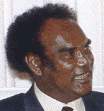
Ulufa'alu |
Ulufa'alu, Bartholomew (b. Dec. 25, 1950, Malaita province, Solomon Islands - d. May 25, 2007, Honiara, Solomon Islands), prime minister of the Solomon Islands (1997-2000). He founded the Solomon Islands General Workers Union and was opposition leader when the Solomon Islands gained independence from Britain in 1978. He was finance minister in 1981-84, 1998-99 (acting), and 2006. He became prime minister in 1997 as leader of the Liberal Party, which was part of the Alliance for Change, a new coalition of independents and smaller parties. In 2000 he was taken hostage by Malaita Eagle Force militiamen and subsequently forced to resign.
Ulumi, Nur ul-Haq (b. Aug. 15, 1941, Kandahar, Afghanistan), interior minister of Afghanistan (2015-16). He was also governor of Kandahar (1989-92).
Ulungu Ekunda (Lukata), Berthold (b. May 12, 1954, Lodja, Belgian Congo [now Congo (Kinshasa)]), special commissioner (2015-16) and governor (2016-19) of Sankuru.
Uluots, Jüri (b. Jan. 13, 1890, Kirbla parish, Lääne county, Russia [now in Estonia] - d. Jan. 9, 1945, Stockholm, Sweden), prime minister (1939-40) and prime minister acting as president in exile (1940-45) of Estonia.
Uluots, Ülo (b. Feb. 4, 1930, Jõhvi, Estonia - d. July 18, 1997, Tallinn, Estonia), defense minister of Estonia (1992); nephew of Jüri Uluots.

Ulusu |
Ulusu, Bülent (Bülent also appears as Bülend) (b. May 7, 1923, Istanbul, Turkey - d. Dec. 23, 2015, Istanbul), prime minister of Turkey (1980-83). He was educated at the naval academy and later at the naval staff college. A career of steady promotion took him through subordinate commands to the top job of commander in chief of the navy in 1977. By that time he had forged links with the leaders of the other services, with whom he worked while a member of the Supreme Military Council. He retired from the command of the navy in August 1980, and therefore was not a member of the National Security Council that took over the country's government on September 12. As it was, his fellow commanders appointed him prime minister. Had there been no military coup, he would have become Turkish ambassador in Rome. He had learned Italian some 20 years earlier when he had served for two years in the NATO naval headquarters in Malta. Because of its links with Istanbul, the old imperial Ottoman capital, and also because of the abiding influence of British naval officers, who had advised the Ottoman navy for decades before World War I, the Turkish navy was considered the most gentlemanly of the nation's three military services, and it had often provided the republic with statesmen and diplomats of poise and savoir-faire. Ulusu followed that tradition. When he was chairman of the Turkish Naval Trust, he was described by a leading journalist as "a courteous man, with whom it is a pleasure to work, with an unequalled understanding of teamwork and high ability as a coordinator." For many Turks, Admiral Ulusu symbolized the hope of calm after a storm. Certainly there was a world of difference between his infrequent matter-of-fact statements and the impassioned rhetoric of the politicians whom he replaced. He served until the return to civilian rule in 1983.
Ulveling, Georges (b. Dec. 27, 1824, Luxembourg, Luxembourg - d. May 16, 1889), finance minister of Luxembourg (1869-73); son of Jean Ulveling.
Ulveling, Jean (b. April 3, 1796, Wiltz, France [now in Luxembourg] - d. Dec. 7, 1878, Luxembourg, Luxembourg), finance minister (1848, 1859-66) and interior minister (1858-59, 1866) of Luxembourg.
Ulveseth, Ingvald Johan (b. Aug. 25, 1924, Fjell, Hordaland [now in Vestland], Norway - d. March 14, 2008), governor of Sogn og Fjordane (1976-94). He was also Norwegian industry minister (1973-76).
Ulyanov, Dmitry (Ilich) (b. Aug. 16 [Aug. 4, O.S.], 1874, Simbirsk [now Ulyanovsk], Russia - d. July 16, 1943, Gorky, near Moscow, Russian S.F.S.R.), provisional chairman of the Council of People's Commissars of the Crimean S.S.R. (1919); brother of Vladimir Ilich Lenin; brother-in-law of Mark Yelizarov.
Umahi, Dave (Nwaeze) (b. July 28, 1963, Umunaga Uburu [now in Ebonyi state], Nigeria), governor of Ebonyi (2015- ).
Umakhanov, Magomed-Salam (Ilyasovich) (b. June 6, 1918, Tsudakhar, Dagestan oblast [now republic], Russia - d. 1992, Moscow, Russia), chairman of the Council of Ministers (1956-67) and first secretary of the Communist Party committee (1967-83) of the Dagestan A.S.S.R. He was also minister of light and food industry (1953) and consumer goods industry (1953-54).
Umalatov, Alipasha (Dzhalalovich) (b. May 1, 1927, Karabudakhkent, Dagestan A.S.S.R., Russian S.F.S.R. - d. June 21, 2022), chairman of the Council of Ministers (1967-78) and chairman of the Presidium of the Supreme Soviet (1978-87) of the Dagestan A.S.S.R.
Umaña Bernal, Francisco (b. Feb. 19, 1901, Tunja, Colombia - d. Jan. 10, 1975), foreign minister of Colombia (1946). He was also mayor of Bogotá (1931), chargé d'affaires in Belgium (1935-39), minister to Spain (1939-44), and ambassador to Brazil (1947-48).
Umansky, Ihor (Ivanovych) (b. Jan. 9, 1975, Pripyat, Kiev oblast, Ukrainian S.S.R.), finance minister of Ukraine (2009-10 [acting], 2020).
Umantsov, Andrey (Petrovich) (b. 1759 - d. May 19 [May 7, O.S.], 1821), governor of Simbirsk (1819-21); illegitimate brother of Graf Nikolay Rumyantsev and Graf Sergey Rumyantsev.
Umar, Abubakar (Danjuma) (b. 1949, Birnin Kebbi [now in Kebbi state], Nigeria), governor of Kaduna (1985-88).
Umar, Adam Shareef, defense minister of Maldives (2015-18).
Umar, Asad, also spelled Umer (b. Sept. 8, 1961, Rawalpindi, Pakistan), finance minister of Pakistan (2018- ); brother of Muhammad Zubair.
`Umar Khan (d. March 22, 1826), emir of Bukhara (1826).
Umari, Arshad (Pasha) al-, Arabic Arshad (Basha) al-`Umari (b. April 8, 1888, Mosul, Ottoman Empire [now in Iraq] - d. 1978, Baghdad, Iraq), defense minister (1944, 1948), foreign minister (1944-45), prime minister (1946, 1954), and interior minister (1946) of Iraq. He was also lord mayor of Baghdad (1931-33, 1936-44) and minister of public works (1934-35), supply (1944), and construction (1954).
Umari, Mustafa (Mahmud) al-, Arabic Mustafa (Mahmud) al-`Umari (b. 1894, Mosul, Ottoman Empire [now in Iraq] - d. Sept. 10, 1960, London, England), prime minister of Iraq (1952). He was also minister of justice (1937-38), interior (1937-38, 1941, 1944-46, 1948, 1952), and economy (1948).

D. Umarov |
Umarov, Doku (Khamatovich), also known as Abu Usman (b. April 13, 1964, Kharsenoy, Shatoy district, Chechen-Ingush A.S.S.R., Russian S.F.S.R. - d. Sept. 7, 2013), vice president (2005-06) and president (2006-07) of separatist Chechnya. In 2007 he proclaimed himself emir of the Caucasus Emirate, saying: "All lands in Caucasus, where mujahideen who gave bayah [oath] to me wage jihad, I declare velayats [states] of the Caucasus Emirate including Dagestan, Nokhchiycho [Chechnya], Ghalghaycho [Ingushetia], Iriston [Ossetia], the Nogay steppe, and the combined areas of Kabarda, Bulkar, and Karachay. ... I do not believe it is necessary to draw the borders of the Caucasus Emirate. ...after expelling the infidels we must reclaim all historical lands of Muslims, and these borders are beyond the boundaries of Caucasus." His death was reported by the rebels on March 18, 2014, without specifying the date and whether he was killed or died peacefully. Insurgency commanders later related that he was poisoned in August 2013 and died a month later.
Umarov, Kayrat (Yermekovich) (b. Jan. 12, 1963, Fergana, Uzbek S.S.R.), Kazakh diplomat. He has been ambassador to India (2004-09), Sri Lanka (2008-09), the United States (2013-17), and Austria (2020-22) and permanent representative to the United Nations (2017-20).
Umaru, Mohammed (Ndatsu) (b. 1950), governor of Kwara (1985-86) and Kano (1987-88).
Umba di Lutete, (Jean Théodore) (b. June 30, 1939, Seke Konde, Belgian Congo [now in Kongo Central, Congo (Kinshasa)] - d. March 13, 2022, Los Angeles, Calif.), foreign minister of Zaire (1974-75, 1977-79, 1983-85). He was also minister of power (1970-71) and mines (1971-74) and permanent representative to the United Nations (1976-77, 1983).
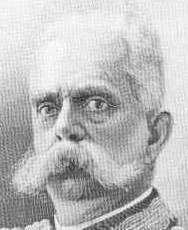
Umberto I |
Umberto I, in full Umberto Ranieri Carlo Emanuele Giovanni Maria Ferdinando Eugenio (b. March 14, 1844, Turin, Piedmont, Kingdom of Sardinia [now in Italy] - d. July 29, 1900, Monza, Italy), king of Italy (1878-1900); son of Vittorio Emanuele II. For the most part he received the usual severe and rigid military education of his house, leaving him predisposed toward authoritarian and imperialist policies. In the war against Austria, he won great popularity by the leadership he showed in saving his troops at the Italian debacle at Custoza (June 1866). On April 22, 1868, he married his cousin Margherita Teresa Giovanna, princess of Savoy, who on Nov. 11, 1869, gave birth to the future Vittorio Emanuele III. Umberto ascended the throne on the death of his father, Jan. 9, 1878, adopting the style Umberto I (of Italy) rather than Umberto IV (of the house of Savoy, as his father had preferred to remain). There was a strong anti-monarchical opposition, but he allayed some suspicions by respecting the constitutional regime and attempting to reconcile various political and regional elements. However, he used the royal prerogative in foreign policy, approving the Triple Alliance (May 20, 1882) with Germany and Austria-Hungary and consolidating the pact in repeated visits to Berlin and Vienna. He also refused to let his governments reduce the money spent on armaments and encouraged colonial adventures in Africa, which ended in failure with the Italian defeat by Ethiopia in the Battle of Adowa (1896). Latterly he tried to override parliament in his choice of premiers and, in the face of social unrest, became associated with a harsh policy of ruling by martial law. This was met by an upsurge of republicanism, culminating in his assassination by the anarchist Gaetano Bresci.
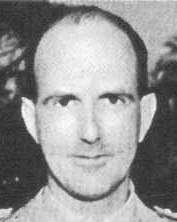
Umberto II |
Umberto II, in full Umberto Nicola Tommaso Giovanni Maria (b. Sept. 15, 1904, Racconigi, Italy - d. March 18, 1983, Geneva, Switzerland), king of Italy (1946). The only son of King Vittorio Emanuele III and Queen Elena, Umberto passed through the Royal Military Academy in Turin, was a lieutenant in the 1st Regiment of Sardinian Grenadiers, rose to become a colonel in 1931, and shortly before World War II was serving as general inspector of infantry. He enjoyed a reputation as a sportsman rather than as a potential head of state. Promoted to the rank of army general in January 1941 and made a marshal on Benito Mussolini's recommendation in October 1942, he commanded an armoured division during the war. After the Allies took Rome, his father appointed him lieutenant general of the realm on June 5, 1944, and abdicated in his favour on May 9, 1946. Umberto campaigned to rally the monarchist forces, but he failed to win support from the Roman Catholic Church, which declared its neutrality. Some 54% of the Italian people voted for a republic in a referendum on June 2. On June 13 he left for Portugal, protesting against what he saw as a premature assumption of his powers by the government before the final results were announced (which occurred on June 18). Under the republican constitution he, the queen, and their male descendants were permanently banished from Italy. He took residence at Cascais, Portugal, under the style of Conte di Sarre; the family moved to Geneva in 1947. On Jan. 8, 1930, he had married Maria José Charlotte Henrietta Gabriella of Saxe-Coburg (b. Aug. 4, 1906, Ostend, Belgium - d. Jan. 27, 2001, Geneva), daughter of King Albert I of Belgium. They had four children: Maria Pia (b. 1934), Vittorio Emanuele (b. 1937), Maria Gabriella (b. 1940), and Maria Beatrice (b. 1943).
Umbetov, Serik (Abikenovich) (b. June 19, 1950, Prudky, Alma-Ata [now Almaty] oblast, Kazakh S.S.R.), head of Almaty oblast (1996-97, 2005-11) and Zhambyl oblast (1999-2004). He was also agriculture minister of Kazakhstan (2004-05).
Umihanic, Bahrija (b. Jan. 22, 1966, Zivinice [now in Federation of Bosnia and Herzegovina]), premier of Tuzla canton (2014-15).
Una, Benjamin (Patrick) (b. Aug. 6, 1952), police, national security, justice, and legal affairs minister of Solomon Islands (2001-02). He was also minister of health and medical services (2002-05).
Uñac, Sergio (Mauricio) (b. Feb. 15, 1970, Pocito, San Juan, Argentina), governor of San Juan (2013-14 [acting], 2015- ).
Unanue (y Pavón), (José) Hipólito (b. Aug. 13, 1755, Arica, Peru [now in Chile] - d. July 15, 1833, Cañete, Peru), finance minister (1821-23, 1823-24, 1824-25) and foreign minister (1824, 1825 [acting], 1825) of Peru.
Unckel, (Carl Gustav) Per (b. Feb. 24, 1948, Finspång, Östergötland, Sweden - d. Sept. 20, 2011, Stockholm, Sweden), governor of Stockholm (2007-11). He was also Swedish education minister (1991-94).
Undasynov, Nurtas (Dandibayevich) (b. Oct. 26, 1904, Uchkayuk, Russia [now Nurtas, Turkestan oblast, Kazakhstan] - d. Nov. 1, 1989, Moscow, Russian S.F.S.R.), chairman of the Council of People's Commissars/Ministers (1938-54) and chairman of the Presidium of the Supreme Soviet (1954-55) of the Kazakh S.S.R. He was also chairman of the Executive Committee of Vostochno-Kazakhstan (acting, 1938) and Guryev (1955-57) oblasti and first secretary of the party committee of Guryev oblast (1957-62).
Undén, (Bo) Östen (b. Aug. 25, 1886, Karlstad, Sweden - d. Jan. 15, 1974, Stockholm, Sweden), foreign minister of Sweden (1924-26, 1945-62). He was also a minister without portfolio (1917-20, 1932-36) and minister of justice (1920).

C.H. Underwood |
Underwood, Cecil H(arland) (b. Nov. 5, 1922, Joseph's Mills, W.Va. - d. Nov. 24, 2008, Charleston, W.Va.), governor of West Virginia (1957-61, 1997-2001). He was elected West Virginia's youngest governor in 1956. He lost three bids to return to the governor's mansion, in 1964, 1968, and 1976. He also lost a 1960 bid for the U.S. Senate. But he celebrated his 74th birthday on Nov. 5, 1996, by winning a nail-biter over Democrat Charlotte Pritt, a coal miner's daughter and former state legislator, to become the state's oldest governor. He was supported by business and said he would use technology to improve education and create jobs. Pritt, who would have been the state's first female governor, strongly supported unions, raising taxes on natural resources such as coal and timber, and tougher environmental laws.

P. Underwood | 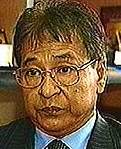
Ung Huot | 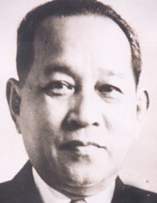
Ung Van Khiem |
Underwood, Peter (George) (b. Oct. 10, 1937, United Kingdom - d. July 7, 2014, Hobart, Tas.), governor of Tasmania (2008-14). He was chief justice of Tasmania in 2004-08.
Üner, Salih Ragip (b. 1914, Nevsehir, Ottoman Empire [now in Turkey] - d. Aug. 31, 1994), interior minister of Turkey (1969). He was also minister of health (1960-62).
Unevik, Kjell (Owe) (b. July 23, 1952, Bäckseda, Jönköping, Sweden), acting governor of Örebro (2015).
Ung Huot (b. 1945, Chak Angre, Kandal Stung, Kandal, Cambodia), foreign minister (1994-98) and first prime minister (1997-98) of Cambodia. He was also national education minister (1993-94).
Ung Hy (b. 1884 - d. Oct. 16, 1964), finance minister of Cambodia (1945).
Ung Van Khiem (b. Feb. 13, 1910, Cho Moi, Long Xuyen, An Giang province, Vietnam - d. March 20, 1991, Ho Chi Minh City, Vietnam), foreign minister (1961-63) and interior minister (1963-71) of North Vietnam.
Unger, Abraham (b. Oct. 31, 1870, Söderala, Gävleborg, Sweden - d. Feb. 23, 1949), governor of Värmland (1921-36).

P.-F. Unger |
Unger, Pierre-François (b. Aug. 21, 1951, Geneva, Switzerland), president of the Council of State of Genève (2005-06, 2011-12).
Ungiadze, Yury (Gedevanovich) (b. 1928), chairman of the Council of Ministers of the Adzhar A.S.S.R. (1977-83?).
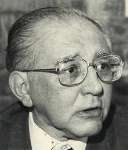
Ungo |
Ungo (Revelo), Guillermo (Manuel) (b. Sept. 3, 1931, San Salvador, El Salvador - d. Feb. 28, 1991, Mexico City, Mexico), Salvadoran politician. He became a member of Catholic Action, a political student movement. During the 1960s he helped found the National Revolutionary Movement (MNR) and was named its secretary-general in 1969. He ran as José Napoleón Duarte's vice presidential candidate in the 1972 election that was halted by the military. Ungo later served (1979) on a five-man military junta replacing Gen. Carlos Humberto Romero before resigning after 10 weeks because the Army had blocked reforms. He joined the opposition and, after receiving death threats, moved to Panama City, Panama. He returned to El Salvador in 1987 to once again try to restore peace, but after the defeat in 1989 of his Democratic Convergence, he felt that voters viewed him as a front man for leftist insurgents rather than as a politician seeking democracy.
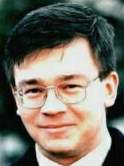
Ungureanu |
Ungureanu, Mihai-Razvan (Stefan) (b. Sept. 22, 1968, Iasi, Romania), foreign minister (2004-07) and prime minister (2012) of Romania. He was also director of the Foreign Intelligence Service (2007-12, 2015-16) and president of the Civic Force party (2012-14).
Unkeo, also spelled Oun Keo (d. 1850, Bangkok, Siam [now Thailand]), regent of Luang Phra Bang (1837-38).
Unkovic, Milorad (b. July 19, 1945, Nevesinje, Yugoslavia [now in Republika Srpska, Bosnia and Herzegovina] - d. July 12, 2013), president of the Executive Board (1987-89) and of the City Assembly (1989-92) of Belgrade and Yugoslav minister for foreign economic relations (1993-94).
Unkovsky, Ivan (Semyonovich) (b. April 10 [March 29, O.S.], 1822, Kolyshevo village, Kaluga province, Russia - d. Aug. 23 [Aug. 11, O.S.], 1886), governor of Yaroslavl (1861-73).

Uno |
Uno, Sosuke (b. Aug. 27, 1922, Shiga prefecture, Japan - d. May 19, 1998, Moriyama, Shiga prefecture), prime minister of Japan (1989). Conscripted into the army in 1943, he was captured by Soviet troops in northern Korea in the last days of the war and was held as a prisoner of war in Siberia for two years. He began his political career in 1951 when he was elected to the Shiga prefectural assembly. First elected to the House of Representatives in 1960, he helped lay the groundwork for the normalization of relations between Japan and South Korea in the early 1960s, and in the 1970s developed a reputation as one of the Liberal-Democratic Party's leading experts on finance. He served in various ministerial posts including defense (1974), trade and industry (1983), and foreign affairs (1987-89) before the party chose him to be prime minister in June 1989, largely because he was one of the few politicians untainted by the stocks-for-favours scandal that brought down his predecessor, Noboru Takeshita. Ironically, his own term of office appeared doomed from the start due to a sex scandal (media reports that he had had extramarital affairs with several geishas, including an outspoken "Ms. A"). Party elders sharply curtailed his campaign appearances in the upper house elections of July 1989, ostensibly so as not to offend women voters. The LDP's crushing defeat in those elections was the last straw, and after 68 days in office he was compelled to resign in August. He retired from politics in 1996.
Unsgaard, Iver Emil Herman Villiam (b. Sept. 10, 1828, Copenhagen, Denmark - d. Feb. 25, 1886, Nykøbing Falster, Denmark), Danish official; son of Iver Johan Unsgaard. He was amtmand of Vejle (acting, 1868), Thisted (1868-85), and Maribo (1885-86).
Unsgaard, Iver Johan (b. Sept. 4, 1798, Copenhagen, Denmark - d. Sept. 16, 1872, Thisted, Denmark), interior minister of Denmark (1856, 1858-59). He was also amtmand of Odense (1848-56, 1860-69) and minister for Holstein and Lauenburg (1857-59).
Unsworth, Barrie (John) (b. April 16, 1934, Dubbo, N.S.W.), premier of New South Wales (1986-88).
Unterberger, Pavel (Fyodorovich), German Paul Simon Unterberger (b. Aug. 21 [Aug. 9, O.S.], 1842, Simbirsk [now Ulyanovsk], Russia - d. Feb. 12, 1921, Remplin, Mecklenburg-Schwerin [now in Mecklenburg-Vorpommern], Germany), governor of Primorye oblast (1888-97) and Nizhny Novgorod (1897-1905) and governor-general of Priamurye (1905-10).
Ünüsan, Teoman (b. Oct. 21, 1940, Istanbul, Turkey), interior minister of Turkey (1995-96). He was also governor of Mersin (1988-90).
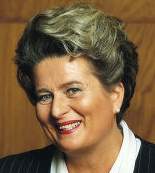
Uosukainen |
Uosukainen, Riitta (Maria), née Vainikka (b. June 18, 1942, Jääski, Finland), Finnish politician. A member of the Conservative Party (KOK), she became a member of parliament in 1983. She served as minister of education (1991-94) and as the country's first female chairman of parliament (1994-95, 1995-99, 1999-2003). She was a presidential candidate in 2000.
Upadhyaya, Shailendra Kumar (b. Sept. 13, 1929, India - d. May 9, 2011, Mount Everest, Nepal), foreign minister of Nepal (1986-90). He was also minister of home affairs, law, and parliamentary affairs (1959-60), panchayat affairs (1965), health (1966), and home and panchayat affairs, land reform, information, and broadcasting (1970-71) and permanent representative to the United Nations (1972-78). He died in his attempt to become the oldest person to climb Mount Everest.
Upadit Pachariyangkun (b. Dec. 10, 1920, Bangkok, Siam [now Thailand] - d. July 5, 2012, Bangkok), foreign minister of Thailand (1976-80). He was also ambassador to Nigeria, Ivory Coast, and Liberia (1966-70), Switzerland (1972-73), West Germany (1973-76), and the United States (1976).
Upshaw, William D(avid) (b. Oct. 15, 1866, near Newnan, Ga. - d. Nov. 21, 1952, Glendale, Calif.), U.S. politician. He was a Democratic representative from Georgia (1919-27) and Prohibition Party presidential candidate (1932).
Upshur, Abel P(arker) (b. June 17, 1790, Northampton county, Va. - d. [killed in explosion of experimental cannon on the warship Princeton] Feb. 28, 1844, Potomac River, near Washington, D.C.), U.S. secretary of the navy (1841-43) and secretary of state (1843-44).
Uran, (Mustafa) Hilmi, before 1935 Hilmi Bey (b. 1886, Bodrum, Ottoman Empire [now in Turkey] - d. Oct. 21, 1957, Istanbul, Turkey), interior minister of Turkey (1943-46). He was also minister of public works (1930-33) and justice (1938-39).
Urankhayev, Nurlan (Telmanovich) (b. May 4, 1965, Semipalatinsk, Vostochno-Kazakhstan oblast, Kazakh S.S.R.), head of Abay oblast (2022- ).
Urayev, Pyotr (Vasilyevich) (b. July 10 [June 27, O.S.], 1910, Berezniki, Penza province, Russia - d. July 22, 1967, Yoshkar-Ola, Mari A.S.S.R., Russian S.F.S.R.), first secretary of the Communist Party committee of the Mari A.S.S.R. (1963-67).
Urazbayev, Nasyr (Rafikovich) (b. April 3, 1902, Utyakovo, Ufa province [now in Bashkortostan republic], Russia - d. Jan. 29, 1981, Ufa, Bashkir A.S.S.R., Russian S.F.S.R.), chairman of the Council of Ministers of the Bashkir A.S.S.R. (1946-51).
Urazbekov, Abdukadyr (b. 1889, Okhna, Fergana oblast, Russia [now in Kyrgyzstan] - d. [executed] November 1938, near Tash-Debe, Kirgiz S.S.R.), chairman of the (Central) Executive Committee of the Kirgiz autonomous oblast/A.S.S.R./S.S.R. (1925-37).
Urban, Bohumil (b. June 29, 1934, Rájov, Czechoslovakia [now in Czech Republic]), Czechoslovak politician. He was minister of industry (1978-81) and a first deputy premier and chairman of the Planning Commission (1987-88) of the Czech Socialist Republic and minister of external trade (1981-87) and a first deputy premier and chairman of the State Planning Commission (1988-89) of Czechoslovakia.
Urbaneja (y Sturdy), Diego Bautista (García de) (b. 1782 - d. 1856), acting president of Venezuela (1847).
Urbánek, Karel (b. March 22, 1941, Bojkovice, Bohemia and Moravia [now in Czech Republic]), general secretary of the Communist Party of Czechoslovakia (1989). He was also first secretary of the party committee of Brno city (1984-88).
Urbina (Ortega), Jorge (Antonio) (b. May 2, 1946, Alajuela, Costa Rica), Costa Rican politician. He was information minister (1989-90) and permanent representative to the United Nations (2006-10).
Urbizo Panting, (José) Delmer (b. Dec. 30, 1936, San Pedro Sula, Honduras - d. May 23, 2021, San Pedro Sula), foreign minister of Honduras (1995-98). He was also minister of economy and commerce (1994-95) and interior and justice (1998-99) and director of the central bank (1999-2001).
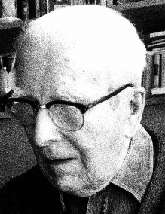
Urbsys |
Urbsys, Juozas (b. Feb. 29, 1896, Seteniai village, Russia [now in Lithuania] - d. April 30, 1991, Kaunas, Lithuania), foreign minister of Lithuania (1938-40). Having also been minister to Latvia (1933-34), he was the last foreign minister of Lithuania before the Soviet invasion of 1940. He was arrested that year and imprisoned in Siberia until Stalin's death. In 1988 he published his memoirs on the events in 1940, which became a best-seller. In 1989 he expressed his support for Lithuania's independence, and served as an example of the continuity between the prewar Republic of Lithuania and the efforts to reestablish it.
Urbye, Andreas Tostrup (b. May 8, 1869, Fredrikshald, Smaalenenes amt [now Halden, Viken fylke], Norway - d. May 16, 1955), governor of Finmarkens amt (1906-12), justice minister of Norway (1916-17), and acting governor of Kristiania amt (1917-18). He was also minister of labour (1913-16) and minister to Finland (1918-24), Estonia and Latvia (1922-24), the Soviet Union (1924-39), and Iran (1931-39).
Urcuyo (Llanes), Eduardo, interior minister of Nicaragua (2003).
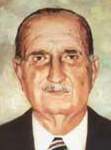
F. Urcuyo | 
Urdaneta |
Urcuyo Maliaño, Francisco (b. July 30, 1915, Rivas, Nicaragua - d. Sept. 13, 2001, Managua, Nicaragua), acting president of Nicaragua (1979). He was also vice president and minister of public health (1967-72).
Urdaneta Arbeláez, Roberto (b. June 27, 1890, Bogotá, Colombia - d. Aug. 20, 1972, Bogotá), acting president of Colombia (1951-53). He was also foreign (1931-35), finance (1945), interior (1946-48, 1951), and war (1950-51) minister, ambassador to Peru (1935-39) and Argentina (1940-42), and permanent representative to the United Nations (1948-49).
Urdinola (Uribe), Antonio José (b. 1939, Tuluá, Valle del Cauca, Colombia), finance minister of Colombia (1997-98).
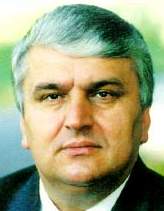
Urecheanu | 
Ürgüplü |
Urecheanu, Serafim, also spelled Urechean (b. Feb. 2, 1950, Larga village, Briceni district, Moldavian S.S.R.), Moldovan politician. He was a Communist Party apparatchik in Soviet times. In the early 1990s he headed the country's trade unions before becoming mayor of the capital, Chisinau (1994-2005). In 1999 he was nominated as prime minister but then withdrew his candidacy.
Ureta (Montehermoso), Eloy G(aspar) (b. Dec. 12, 1892, Chiclayo, Peru - d. Oct. 10, 1965, Madrid, Spain), Peruvian politician. He was a presidential candidate (1945) and ambassador to Spain (1949-55).
Ureta (y Pacheco), Manuel Toribio (b. April 26, 1813, Arequipa, Peru - d. Aug. 10, 1875, Lima, Peru), foreign minister (1854-55) and interior minister (1854-55) of Peru. He was also minister to Bolivia (1843-44) and minister of education (1855) and justice, worship, and finance (1855).
Ureta Echazarreta, Arturo (b. May 13, 1876, San Fernando, Chile - d. June 20, 1950, Santiago, Chile), justice minister of Chile (1932).
Ürgüplü, (Ali) Suat Hayri (b. Aug. 13, 1903, Damascus, Ottoman Empire [now in Syria] - d. Dec. 26, 1981, Istanbul, Turkey), prime minister of Turkey (1965). He was also minister of customs and public monopolies (1943-46), ambassador to West Germany (1952-55), the United Kingdom (1955-57), the United States (1957-60), and Spain (1960), and chairman of the Senate (1961-63).
Uriarte García, José Higinio, foreign minister of Paraguay (1874). He was also minister to the United Kingdom (1874-75) and France and the Vatican (1875).
Uribe (Gaviria), Antonio José (b. March 6, 1869, Medellín, Colombia - d. March 9, 1942, Bogotá, Colombia), foreign minister of Colombia (1901, 1922). He was also minister of education (1903-04) and minister to Argentina, Brazil, and Chile (1904).
Uribe (Echeverri), Carlos (b. April 13, 1888, Rionegro, Antioquia, Colombia - d. June 22, 1958, Medellín, Colombia), foreign minister of Colombia (1927-30). He was also chargé d'affaires in the United States (1921-22), minister to Uruguay (1923-24), Chile (1924-27), Brazil (1931-34), and Spain (1935-36) and minister of mines and petroleum (1943-44).
Uribe (Trujillo), Nora (Margarita) (b. Nov. 26, 1938, Caracas, Venezuela), Venezuelan politician. She was minister of communication and information (2002-03) and ambassador to Costa Rica (2004-07), Paraguay (2007-10), and El Salvador (2010-19).
Uribe Botero, Eduardo (b. March 3, 1910, La Ceja, Antioquia, Colombia - d. Jan. 16, 1973, Medellín, Antioquia), interior minister of Colombia (1962-63). He was also governor of Antioquia (1938) and ambassador to the United States (1963-67).
Uribe Echavarría, Jorge Alberto (b. Oct. 30, 1940, Rionegro, Antioquia, Colombia), defense minister of Colombia (2003-05).
Uribe Gaviria, Carlos (b. 1892, Rionegro, Antioquia, Colombia - d. September 1985), war minister of Colombia (1932-34); brother of Julián Uribe Gaviria.
Uribe Gaviria, Julián (b. Dec. 31, 1890, Medellín, Colombia - d. June 21, 1952, Medellín), Colombian politician. He was governor of Antioquia (1932-33, 1933-34, 1937).
Uribe Holguín, Juan (b. May 31, 1903, Bogotá, Colombia - d. March 20, 1983), foreign minister of Colombia (1952-53). He was also justice minister (1951-52) and ambassador to France (1957-60).
Uribe Orrego, Luis (b. Aug. 31, 1847, Copiapó, Chile - d. July 18, 1914, Valparaíso, Chile), war and marine minister of Chile (1905). He was also commandant-general of the navy (1887-89).
Uribe Vargas, Diego (b. Nov. 1, 1931, Bogotá, Colombia - d. Aug. 12, 2022), foreign minister of Colombia (1978-81). He was also governor of Cundinamarca (1970-72) and ambassador to France (1983-85).

Uribe V. |
Uribe Vélez, Álvaro (b. July 4, 1952, Medellín, Colombia), president of Colombia (2002-10). His career as a public servant began in 1977, when he worked for a year in the ministry of labour. He then became director of the national civil aviation authority (1980-82), mayor of Medellín (1982-84), a national senator (1986-94), and governor of Antioquia (1995-97). In 2002 the former Liberal, running as an independent (forming his own Colombia First movement) and backed by the Conservative Party, was elected president with 53% of the vote, having pledged to crack down on leftist rebels in a bid to end four decades of political violence. He boosted the armed forces and stepped up the offensive. He launched peace talks with the National Liberation Army (ELN), but the main leftist insurgency, the 17,000-strong Revolutionary Armed Forces of Colombia (FARC), members of which had killed his father in a 1983 kidnapping attempt, rejected negotiations with Uribe, calling him a warmonger. Uribe secured a controversial peace deal with right-wing paramilitary forces that led to the demobilization of 30,000 fighters. He repeatedly dismissed earlier claims that he himself once had links with the paramilitary United Self-Defense Forces of Colombia (AUC). During his first four-year term he put 25% more troops and police on the streets and nearly doubled defense spending, backed by U.S. aid. A constitutional amendment he pushed through Congress in 2005 allowed him to seek a second term, and in 2006 he became the first reelected president since Rafael Núñez in 1892. Credited with improving security and achieving strong economic growth, he won 62% of the vote. He stood out as Washington's strongest ally in a region that was dominated by leftist leaders. His second term was marred by scandals over human rights abuses by troops and the illegal wiretapping of his opponents by the state intelligence agency. In 2010 the constitutional court rejected a proposal for a referendum on amending the constitution to allow a third term. He won a Senate seat in 2014. In August-October 2020 he was placed under house arrest while being investigated for fraud and witness tampering in a case related to his alleged support for illegal paramilitaries.
Uriburu (Uriburu), Enrique Casiano (b. Aug. 1, 1876, Buenos Aires, Argentina - d. June 17, 1936, Buenos Aires), finance minister of Argentina (1931-32); son of Francisco Uriburu.
Uriburu (Patrón), Francisco (Paulo) (b. July 13, 1837, Salta, Argentina - d. Feb. 10, 1906, Buenos Aires, Argentina), finance minister of Argentina (1890) and federal interventor in Mendoza (1892).
Uriburu, José (Alberto), labour minister of Argentina (1999).

J.E. Uriburu |
Uriburu (y Álvarez de Arenales), José (Félix) Evaristo (b. Nov. 19, 1831, Salta, Argentina - d. Oct. 25, 1914, Buenos Aires, Argentina), president of Argentina (1895-98). Born into a family prominent in the war of independence against Spain, he held various governmental positions (including president of the Chamber in 1863-64 and 1865-67, justice and education minister in 1867-68, and federal judge) and served for some 20 years as a diplomat, notably as minister to Chile (1883-92), helping to resolve legal and diplomatic problems arising from the War of the Pacific, which had been waged by Chile against Bolivia and Peru. In 1892 he was elected vice president of Argentina with Luis Sáenz Peña, having been selected as a man of no marked political affiliations. During the following two years there were revolutionary disturbances which he worked to suppress without bloodshed. They were eventually suppressed, but Sáenz Peña resigned due to differences with the Congress and Uriburu succeeded to the presidency. During his term he issued bonds to pay off the claims of the foreign-owned railway companies, and at the beginning of 1897 was in a position to resume payment on the foreign debt for the first time since 1890. He also reorganized the armed forces and maintained peaceful relations with Chile despite a serious boundary dispute. He retired from the presidency on the completion of Sáenz Peña's term, became a senator (1901-10) and provisional president of the Senate (1902-06, 1908-09), acted as president in 1903 during the absence of Pres. Julio A. Roca and Vice Pres. Norberto Quirno Costa, and was a candidate for the presidency again in 1904. His son José Evaristo Uriburu (Tezanos Pinto) (1880-1956) served as minister (1921-28) and ambassador (1928-31) to Great Britain.

J.F. Uriburu |
Uriburu (y de Uriburu), José Félix (Benito de) (b. July 20, 1868, Salta, Argentina - d. April 29, 1932, Paris, France), president of the Provisional Government of Argentina (1930-32). He was a member of an old land-owning family and a nephew of Pres. José Evaristo Uriburu. In 1890, as a junior officer, he was the co-founder of a military secret society dedicated to preserving the political ascendancy of his class in Argentina. In 1893 he became military aide-de-camp to his uncle, the vice president. In Germany from 1902, he served as a member of the Kaiser's imperial guard and became an ardent admirer of Prussian militarism. In 1907-12 he directed the Superior School of War, traveling to Germany again in 1908 to gather information on German military education. At times he also served as military attaché at Madrid and London. He was inspector general of the Argentine army in 1923-27. He retired from the army in 1929. In September 1930, during the Great Depression, he led an army revolt against the Radical leader, Pres. Hipólito Irigoyen, and became provisional head of state, setting up a government dominated by the wealthy and conservative classes. He denounced Irigoyen's pro-labour legislation, removed all Radical leaders from their administrative posts and refused to allow them to participate in politics, dissolved the Congress (a measure without precedent), and reformed the constitution and election law. After governing by decree for a year he permitted new presidential elections to be held on Nov. 8, 1931, which were rigged to ensure the oligarchy's continued control. He did not seek election himself but supported Gen. Agustín P. Justo, a participant of the 1930 coup.
Urinson, Yakov (Moiseyevich) (b. Sept. 12, 1944, Moscow, Russian S.F.S.R.), a deputy prime minister of Russia (1997-98). He was also economy minister (1997-98).
Urioste (Suárez), (Francisco) Ovidio (b. April 21, 1889, Sucre, Bolivia - d. 1957, Sucre), interior and justice minister of Bolivia (1934).
Urkumbayev, Mars (Fazylovich) (b. Nov. 23, 1939, Alma-Ata, Kazakh S.S.R. [now Almaty, Kazakhstan] - d. Feb. 17, 2012), head of Yuzhno-Kazakhstan oblast (1992-93). He was also economy minister of Kazakhstan (1994).
Urmeneta (García), (Manuel) Jerónimo (b. 1816, Santiago, Chile - d. Aug. 24, 1881, Santiago), finance minister (1850-52) and foreign and interior minister (1857-60) of Chile. He was also president of the Chamber of Deputies (1852-57).
Urpilainen, Jutta (Pauliina) (b. Aug. 4, 1975, Lapua, Finland), deputy prime minister and finance minister of Finland (2011-14). She has also been chairman of the Social Democratic Party (2008-14) and EU commissioner for international partnerships (2019- ).
Urquía (Martínez), Miguel Rafael (b. April 30, 1905, Comayagüela, Honduras - d. ...), foreign minister of El Salvador (1948-50). He was also permanent representative to the United Nations (1951-62, 1977-79).

Urquiza |
Urquiza (y García), Justo José de (baptized José Justo) (b. Oct. 18, 1801, Arroyo Largo, Río de la Plata [now Arroyo Urquiza, Entre Ríos, Argentina] - d. April 11, 1870, San José, Entre Ríos), president of Argentina (1852-60). Helped by his family's relations with Gov. Francisco Ramírez, he entered political life in his native Entre Ríos province, and ultimately went to Buenos Aires as the agent of Gov. Pascual Echagüe. Becoming an ally of dictator Juan Manuel de Rosas, he was made a colonel in 1837 and replaced his patron Echagüe as governor of Entre Ríos in 1842. Forming an alliance with lesser provincial chieftains, he turned against Rosas in 1851 and defeated him in February 1852 at the Battle of Monte Caseros. In August 1852, as provisional director of Argentina, he called a constitutional congress at Santa Fe which in 1853 sanctioned a new constitution modeled on that of the United States. All provinces accepted the constitution except Buenos Aires, which refused to join the union until 1860. He was elected president for the term 1854-60, during which he opened Argentine ports to world trade and encouraged immigration and railways. After leaving the presidency he was made general of the army and resumed his post as governor of Entre Ríos (until 1864). In 1861 Buenos Aires, determined to lead the nation, again seceded and under Gov. Bartolomé Mitre defeated Urquiza and the confederation forces at Pavón. In 1868 he was a candidate for the presidency, but was defeated by Domingo Faustino Sarmiento. Governor again from 1868, he was assassinated in his villa by followers of Ricardo López Jordán, an ambitious local caudillo.
Urquizo (Maggia), José (Antonio) (b. Feb. 13, 1967, Ayacucho, Peru), defense minister of Peru (2012). He was also minister of production (2011-12).

Urrejola |
Urrejola (Noguera), Antonia (b. Nov. 13, 1968, Recoleta, Santiago, Chile), foreign minister of Chile (2022-23).
Urresti (Elera), Daniel (Belizario) (b. Aug. 25, 1956, Huancabamba, Piura, Peru), interior minister of Peru (2014-15). He was a presidential candidate in 2021.
Urribarri (Luchessi), Sergio (Daniel) (b. Oct. 7, 1958, Arroyo Barú, Entre Ríos, Argentina), governor of Entre Ríos (2007-15). In 2020 he was named Argentinian ambassador to Israel.
Urriola (Garrés), Ciro Luis (b. July 3, 1863, Panama City, Colombia [now in Panama] - d. June 26, 1922, Panama City), first vice president (1916-18) and acting president (1918) of Panama.
Urriola (Balbontín), Pedro (Alcántara) (b. Feb. 22, 1797, Santiago, Chile - d. April 20, 1851, Santiago), acting war and marine minister of Chile (1832-33).
Urriolagoitia (Harriague), Mamerto (b. Dec. 5, 1895, Sucre, Bolivia - d. June 4, 1974, Sucre), foreign minister (1947), vice president (1947-49), and president (1949-51) of Bolivia.
Urrutia (Vásquez), Basilio (José) (b. June 14, 1816, María Luisa del Parral, Chile - d. June 3, 1881, Santiago, Chile), war and marine minister of Chile (1879-80). He was also intendant of Chiloé (1864-65) and Arauco (1865-68) and senior general of the army (1876-79).
Urrutia (Olano), Francisco José (b. April 12, 1870, Popayán, Colombia - d. Aug. 6, 1950, Bogotá, Colombia), foreign minister of Colombia (1908-09, 1913-14). He was also minister to Bolivia (1911-12), Spain (1918-23), and Switzerland (1919-25) and president of the Senate (1918).
Urrutia (Blanco), Wenceslao (b. c. 1795, Caracas, Venezuela - d. Aug. 18, 1869, Caracas), foreign minister (1858) and finance minister (1868) of Venezuela.
Urrutia Barboza, Miguel A(lberto) (b. Aug. 1, 1861, Chillán, Chile - d. July 27, 1933, Santiago, Chile), defense minister of Chile (1932).
Urrutia Holguín, Francisco José (b. May 28, 1910, Quito, Ecuador - d. Oct. 19, 1981, Bogotá, Colombia), Colombian diplomat; son of Francisco José Urrutia. He was minister to Belgium (1946-47), ambassador to Argentina (1948-50), Venezuela (1952), and the United States (1955-57), and permanent representative to the United Nations (1953-57).
Urrutia Lleó, Manuel (b. Dec. 8, 1901, Yaguajay, Las Villas province, Cuba - d. July 4, 1981, New York City), Cuban politician. He served as a municipal judge but was forced to resign from the bench in 1957 by the government of Pres. Fulgencio Batista because he acquitted 150 youths charged with rebellion in Santiago de Cuba. Urrutia spent the following years in self-imposed exile before being handpicked by Fidel Castro in 1959 to serve as the country's first president after the revolution. He was ousted six months later when Castro accused him of being a traitor. Urrutia endured years of house arrest and asylum in the Venezuelan and Mexican embassies in Havana before securing a safe-conduct pass to the U.S. in 1963. There he denounced the Castro government in the book Fidel Castro & Company, Inc.: Communist Tyranny in Cuba (1964) and in the same year announced the formation of the Democratic Revolutionary Alliance, comprised of 22 anti-Castro exile groups.
Urrutia Manzano, Ignacio (b. July 1, 1879, Concepción, Chile - d. Feb. 8, 1951, Parral, Chile), defense minister of Chile (1932). He was also president of the Senate (1933-34, 1935-36).
Ursel, Joseph d', in full Marie Charles Joseph, 6ème duc d'Ursel et d'Hoboken (b. July 3, 1848, Brussels, Belgium - d. Nov. 15, 1903, Strombeek-Bever, Belgium), chairman of the Senate of Belgium (1899-1903).
Ursíny, Ján (b. Oct. 11, 1896, Raksa, Hungary [now in Slovakia] - d. Jan. 8, 1972, Raksa), a deputy premier of Czechoslovakia (1945-47).
Ursu, Doru Viorel (b. March 1, 1953, Turnu Severin [now Drobeta-Turnu Severin], Romania), interior minister of Romania (1990-91).
Ursúa Arizmendi (y Aguirre), Martín de, conde de Lizárraga(-Vengoa) (baptized Feb. 7, 1653 - d. Feb. 4, 1715), governor-general of the Philippines (1709-15).
Urtecho (Lebrón), José Andrés (b. June 24, 1871, Rivas, Nicaragua - d. Aug. 2, 1938, Managua, Nicaragua), foreign minister of Nicaragua (1917-19, 1924-25, 1925-26). He was a presidential candidate in 1920.
Uruchurtu, Ernesto P(eralta) (b. Feb. 28, 1906, Hermosillo, Sonora, Mexico - d. Oct. 8, 1997, Mexico City, Mexico), interior minister of Mexico (1948, 1951-52) and chief of government of the Distrito Federal (1952-66).
Uruci, Nazif (b. June 6, 1954, Cacak, Serbia), premier of Bosnian Podrinje-Gorazde (2006-07, 2008-10).
Urueta, Carlos Adolfo (b. 1873, Ayapel, Córdoba, Colombia - d. Sept. 13, 1931, Bogotá, Colombia), war minister of Colombia (1931). He was also minister to the United States (1917-21).
Uruguai, Paulino José Soares de Souza, visconde de (b. Oct. 4, 1807, Paris, France - d. July 15, 1866, Rio de Janeiro, Brazil), foreign minister of Brazil (1843-44, 1849-53). He was also president of Rio de Janeiro (1836-40) and justice minister (1840, 1841-43). He was made viscount in 1854.
Uruguaiana, Ângelo Muniz da Silva Ferraz, barão de (b. 1812, Valença, Bahia, Brazil - d. Jan. 18, 1867, Petrópolis, Rio de Janeiro, Brazil), chairman of the Council of Ministers and finance minister of Brazil (1859-61). He was also president of Rio Grande do Sul (1857-59), interior minister (1859), and war minister (1865-66). He was made baron in 1866.
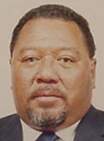
Urusemal |
Urusemal, Joseph J(ohn) (b. March 19, 1952, Woleai island, Yap, Micronesia [now in Federated States of Micronesia]), president of the Federated States of Micronesia (2003-07).
Urusov, Knyaz (Prince) Lev (Pavlovich) (b. Jan. 19 [Jan. 7, O.S.], 1839 - d. April 28, 1928), Russian diplomat; nephew of Knyaz Mikhail Urusov; grandson of Graf Sergey Uvarov; son-in-law of Aleksandr Abaza. He was minister to Romania (1880-86), Belgium (1886-97), and Luxembourg (1891-97) and ambassador to France (1897-1903), Italy (1903-05), and Austria-Hungary (1905-10).
Urusov, Knyaz (Prince) Mikhail (Aleksandrovich) (b. Oct. 13 [Oct. 1, O.S.], 1802 - d. Dec. 28 [Dec. 16, O.S.], 1883, Moscow, Russia), governor of Nizhny Novgorod (1843-54) and governor-general of Vitebsk, Mogilyov, and Smolensk (1855-56); nephew of Dmitry Tatishchev.
Urusov, Knyaz (Prince) Nikita (Sergeyevich) (d. 1806), governor of Yaroslavl (1793-97).
Urusov, Knyaz (Prince) Nikolay (Petrovich) (b. April 12 [March 31, O.S.], 1863 - d. [killed] Oct. 19, 1918, Pyatigorsk, Russia), governor of Grodno (1901-02) and Poltava (1902-06); cousin of Knyaz Lev Urusov.
Urusov, Knyaz (Prince) Sergey (Dmitriyevich) (b. March 19 [March 7, O.S.], 1862, Spassky, Yaroslavl province, Russia - d. Sept. 5, 1937, Moscow, Russian S.F.S.R.), governor of Bessarabia (1903-04) and Tver (1904-05); great-grandson of Knyaz Nikita Urusov. He was also a member of the Russian State Duma (1906).
Urusov, Knyaz (Prince) Sergey (Nikolayevich) (b. May 18, 1816, Moscow, Russia - d. Jan. 13, 1883, St. Petersburg, Russia), justice minister of Russia (1867). He was also secretary of state (1865-67).
Urussuhy, João da Cruz e Santos, barão de (b. 1841, Piauí province [now state], Brazil - d. Aug. 19, 1896, Teresina, Piauí), acting president (1889), member of the Governing Junta (1889), and acting governor (1890) of Piauí. He was made baron in 1872.
Urvoas, Jean-Jacques (b. Sept. 19, 1959, Brest, Finistère, France), justice minister of France (2016-17).
Urwin, Greg(ory Lawrence) (b. August 1946, Lithgow, N.S.W. - d. Aug. 9, 2008, Apia, Samoa), secretary-general of the Pacific Islands Forum (2004-08). He was also Australian high commissioner to Vanuatu (1985-88) and ambassador (1995-97) and high commissioner (1997-99) to Fiji.
Urzáiz y Cuesta, Ángel (b. Feb. 21, 1856, El Puerto de Santa María, Cádiz, Spain - d. May 1, 1926, Madrid, Spain), finance minister of Spain (1901-02, 1905, 1915-16).
Urzúa (Macías), Carlos (Manuel) (b. June 9, 1955, Aguascalientes, Aguascalientes, Mexico), finance minister of Mexico (2018-19).
Urzúa Jaramillo, Óscar (b. 1880, Curicó, Chile - d. July 27, 1950, Santiago, Chile), war and marine minister of Chile (1916-17).
Urzúa Merino, Eduardo (b. July 20, 1916, Curicó, Chile - d. May 31, 1999, Santiago, Chile), finance minister (1956-58) and interior minister (1958) of Chile.
Us, Mikhail (Ivanovich) (b. 1896 - d. 1961), joint acting chairman of the Central Executive Committee of the Kirgiz S.S.R. (1937).
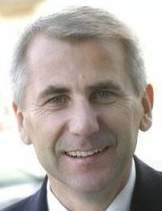
Usackas |
Usackas, Vygaudas (b. Dec. 16, 1964, Skuodas, Lithuanian S.S.R.), foreign minister of Lithuania (2008-10). He was chief negotiator for Lithuania's accession to the EU (2000-01) and ambassador to the U.S. and Mexico (2001-06) and to the U.K. (2006-08). He resigned as foreign minister in January 2010 after allegations he had been involved in covering up a CIA secret detention facility in Lithuania. The following month he was appointed the EU's special representative to Afghanistan and head of its delegation in Kabul.
Usakovsky, Yevgeny (Yevgenyevich) (b. May 27 [May 15, O.S.], 1851 - d. 1935), military governor of Zakaspiyskaya oblast (1902-05).
Useni, Jeremiah Timbut (b. Feb. 16, 1943, Langtang [now in Plateau state], Nigeria), governor of Bendel (1984-85) and minister of the Federal Capital Territory (1993-98).

Usenov |
Usenov, Daniyar (Toktogulovich) (b. March 9, 1960, Frunze, Kirgiz S.S.R. [now Bishkek, Kyrgyzstan]), prime minister of Kyrgyzstan (2009-10). He was also deputy (2005-06) and first deputy (2006-07) prime minister and mayor of Bishkek (2007-08). In 2013 he was sentenced in absentia to 15 years in prison for abuse of power and misappropriating public land while mayor of Bishkek.
Ushaish, Mahmud Abdullah (b. 1943, Rada, Yemen), finance minister of Yemen (Aden) (1967, 1969-73). He was also ambassador to East Germany, Czechoslovakia, Hungary, and Poland (mid-1970s) and minister of communications (1977-80).
Usher, Arsène Assouan (b. Oct. 24, 1930, Grand-Lahou, Ivory Coast [now Côte d'Ivoire] - d. Oct. 13, 2007, Abidjan, Côte d'Ivoire), foreign minister of Ivory Coast (1966-77). He was also permanent representative to the United Nations (1961-66) and mayor of Cocody (1980-90) and Grand-Lahou (1990-2007).
Usher (Genes), Mario (b. June 18, 1884, Asunción, Paraguay - d. 1931), member of the Triumvirate of Paraguay (1912).
Uslar Pietri, Arturo (b. May 16, 1906, Caracas, Venezuela - d. Feb. 26, 2001, Caracas), finance minister (1943) and interior minister (1945) of Venezuela. He was also minister of education (1939-41) and a presidential candidate (1963), besides being a noted writer and journalist (editor of El Nacional 1969-74).
Usman, Ahmed (b. Aug. 20, 1951, Ogodu [now in Kogi state], Nigeria - d. April 14, 2021, Jos, Plateau, Nigeria), administrator of Ondo (1994-96) and Oyo (1996-98).
Usmankhodzhayev, Inamdzhan (Buzrukovich), Inamdzhan also spelled Inamzhon (b. May 21, 1930 - d. March 17, 2017, Fergana, Uzbekistan), chairman of the Presidium of the Supreme Soviet (1978-83) and first secretary of the Communist Party (1983-88) of the Uzbek S.S.R. He was also chairman of the Executive Committee of Namangan oblast (1972-74) and first secretary of the party committee of Andizhan oblast (1974-78).
Usmanov, Gumer (Ismagilovich) (b. March 16, 1932, Chistopol, Tatar A.S.S.R., Russian S.F.S.R. - d. Feb. 23, 2015, Kazan, Tatarstan, Russia), chairman of the Council of Ministers (1966-82) and first secretary of the Communist Party committee (1982-89) of the Tatar A.S.S.R.
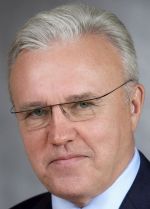
Uss |
Uss, Aleksandr (Viktorovich) (b. Nov. 3, 1954, Novogorodka village, Krasnoyarsk kray, Russian S.F.S.R.), governor of Krasnoyarsk kray (2017- ).
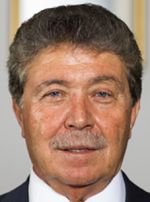
Üstel |
Üstel, Ünal (b. Jan. 4, 1955, Mandria [Yesilova], Paphos district, Cyprus), interior minister (2022) and prime minister (2022- ) of North Cyprus. He was also minister of tourism and environment (2011-13, 2019-20), public works and transportation (2020-21), and health (2021).
Ustinov, Dmitry (Fyodorovich) (b. Oct. 30 [Oct. 17, O.S.], 1908, Samara, Russia - d. Dec. 20, 1984, Moscow, Russian S.F.S.R.), Soviet politician. When in June 1941 Germany attacked the Soviet Union, Iosif Stalin appointed Ustinov people's commissar of armaments, and he retained the post as minister of armaments (1946-53) and minister of defense industries (1953-57). During the war he initiated the evacuation of the Soviet arms industry to beyond the Urals, out of the reach of the advancing German armies, and after the war he continued to build up the Soviet armed forces to rival those of the United States. A full member of the Central Committee from 1952, he was made a deputy premier, still with overall responsibility for the armaments industry, in 1957. In 1963 he became first deputy premier and chairman of the Supreme Council of National Economy. In 1965 he was elected a secretary of the Central Committee with responsibilities for the military, defense industry, and security organs, and he became a candidate member of the Politburo. As such, he worked closely with Yury Andropov, who in 1967 became head of the KGB. In March 1976, he was made a full member of the Politburo; in April, after the death of Andrey Grechko, he was appointed defense minister; in July he was made a marshal of the Soviet Union. He played an important behind-the-scenes role in Soviet-U.S. arms limitation negotiations and was present at the 1979 Vienna summit at which the second strategic arms limitation talks (SALT II) agreement was signed by Leonid Brezhnev and U.S. president Jimmy Carter. Holding the defense portfolio until his death, his tenure saw Soviet forces invade Afghanistan in 1979 and shoot down a South Korean jetliner that strayed into Soviet airspace in 1983. On Brezhnev's death (1982) Ustinov was believed to have been the first to propose Andropov as his successor.
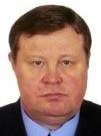
V. Ustinov |
Ustinov, Vladimir (Vasilyevich) (b. Feb. 25, 1953, Nikolayevsk-na-Amure, Khabarovsk kray, Russian S.F.S.R.), prosecutor general (2000-06) and justice minister (2006-08) of Russia and plenipotentiary of the president in Yuzhny federal district (2008- ).
Ustiyan, Ivan (Grigoryevich) (b. Sept. 12, 1939, Oliscani, Romania [now in Moldova]), chairman of the Council of Ministers (1980-85) and foreign minister (1980-81) of the Moldavian S.S.R. He was also chairman of the State Planning Committee and a deputy premier (1978-80).
Usubaliyev, Turdakun (Usubaliyevich) (b. Nov. 6, 1919, Kochkorka village, Russia [now in Naryn oblast, Kyrgyzstan] - d. Sept. 7, 2015, Bishkek, Kyrgyzstan), first secretary of the Communist Party of the Kirgiz S.S.R. (1961-85). He was also first secretary of the party committee of Frunze city (1958-61) and chairman of the Supreme Soviet (1959-61).
Usubov, Ramil (Idris oglu) (b. 1948, Khojali, Nagorno-Karabakh autonomous oblast, Azerbaijan S.S.R.), interior minister of Azerbaijan (1994-2019). In 2019 he became secretary of the Security Council.
Usuman dan (Muhammad) Fodio, Usuman also spelled Usman, or Uthman, Arabic `Uthman ibn Fudi (b. Dec. 15, 1754, Maratta, Gobir [now in Nigeria] - d. April 20, 1817, Sokoto [now in Nigeria]), ruler of Sokoto (1804-17). About 1774 he began to travel throughout Kebbi and Gobir, in what is now northern Nigeria, teaching and preaching with the aim to purify Hausa society of un-Islamic practices. In 1786 he began a campaign in Zamfara. Throughout the 1780s and '90s the community that looked to him for leadership grew in size, much of the support coming from the peasantry whose oppression under the existing dynasties gave rise to millenarian hopes. Although he rejected any identification of himself with the Mahdi, the legendary Muslim redeemer, he encouraged the people's expectations. During the 1790s, a division developed between his community and the Gobir ruling dynasty, and his position at Degel seemed threatened. The Shehu (Sheikh), as Usuman was called, then departed to Gudu (Feb. 21, 1804) in what resembled the hijra of the prophet Muhammad. Elected imam by his followers, he began a jihad (holy war) and created a new Muslim state, Sokoto. The states of Katsina, Kano, Daura, and Zaria were conquered in the following years. When Alkalawa, the capital of Gobir, finally fell in October 1808, the military objectives of the jihad were substantially achieved. In 1812 he assigned responsibility for the western and eastern sectors of the empire, respectively, to his younger brother Abdullahi and his son Muhammadu Bello, and devoted his remaining years to scholarship. After his death, Bello became his main successor at Sokoto, while Abdullahi became emir of Gwandu.
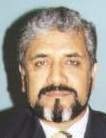
Uteem |
Uteem, Cassam (b. March 22, 1941, Plaine Verte, Mauritius), president of Mauritius (1992-2002). He was also minister of employment, social security, and national solidarity (1982-83) and industry and industrial technology (1990-92), lord mayor of Port Louis (1986), and special envoy of the UN secretary-general and head of the UN Electoral Observation Mission in Burundi (2014-15).
Utheim, John (Johnsen) (b. Jan. 13, 1847, Kvernes [now part of Averøy municipality], Romsdals amt [now Møre og Romsdal fylke], Norway - d. Sept. 16, 1910, Leikanger, Nordre Bergenhus amt [now in Vestland fylke], Norway), governor of Nordre Bergenhus (1902-10).
Utheim, Trygve (b. Sept. 16, 1884, Grytten, Romsdals amt [now Møre og Romsdal fylke], Norway - d. June 15, 1952), governor of Møre/Møre og Romsdal (1928-52). He was also Norwegian minister of social affairs (1933-35).
`Uthman (b. May 27, 1763 - d. [killed] Nov. 21, 1814, Tunis, Tunisia), bey of Tunisia (1814); brother of Hammuda.
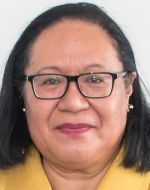
'Utoikamanu |
'Utoikamanu, Fekitamoeloa (Katoa) (b. December 1959), foreign minister of Tonga (2021- ). She was also permanent representative to the United Nations, ambassador to the United States, and high commissioner to Canada (2005-09) and UN high representative for the least developed countries, landlocked developing countries, and small island developing states (2017-21).
Utomo, Imam (b. May 14, 1943, Jombang, Netherlands East Indies [now in Jawa Timur, Indonesia]), governor of Jawa Timur (1998-2008).
Utyupin, Pavel (Vladimirovich), Belarusian Pavel (Uladzimiravich) Utsyupin (b. Dec. 17, 1976, Popovka, Primorsky kray, Russian S.F.S.R.), Belarusian politician. He was industry minister (2018-20); in 2020 he was appointed ambassador to Kazakhstan.
Üürike, Madis (b. Feb. 12, 1943), finance minister of Estonia (1992-94).
Uusitalo, Eino (Oskari) (b. Dec. 1, 1924, Soini, Finland - d. March 19, 2015, Ähtäri, Finland), interior minister (1971, 1976-82), deputy prime minister (1979-82), and acting prime minister (1981-82) of Finland.
Uvarov, Graf Sergey (Semyonovich) (b. Sept. 5 [Aug. 25, O.S.], 1786, Moscow, Russia - d. Sept. 16 [Sept. 4, O.S.], 1855, Moscow), education minister of Russia (1833-49); son-in-law of Graf Aleksey Razumovsky. He was also president of the Imperial Academy of Sciences (1818-55). He was made Graf (count) in 1846.

Uwilingiyimana |
Uwilingiyimana, Agathe (b. 1953, Nyaruhengeri village, eastern Rwanda - d. [killed] April 7, 1994), prime minister of Rwanda (1993-94). She was also minister of education (1992-93).
Uyanayev, Chomay (Batalovich) (b. Jan. 20 [Jan. 7, O.S.], 1914, Kashkhatau, Terek oblast [now in Kabardino-Balkariya republic], Russia - d. ...), chairman of the Presidium of the Supreme Soviet of the Kabardino-Balkar A.S.S.R. (1959-67). He was also people's commissar of education (1940-41) and deputy premier (1957-59).
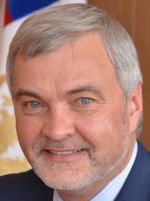
Uyba | 
Uyunqimg |
Uyba, Vladimir (Viktorovich) (b. Oct. 4, 1958, Omsk, Russian S.F.S.R.), head of the republic of Komi (2020- ).
Uybadin, Mehmet Cemil, before 1935 Cemil Bey (b. 1881, Constantinople, Ottoman Empire [now Istanbul, Turkey] - d. July 5, 1957, Istanbul), interior minister of Turkey (1925-27).
Uyunqimg, Chinese Wuyun Qimuge (b. December 1942, Beipiao, Liaoning, China), chairwoman of the government of Nei Mongol (2000-03).
Uzamugura, Martin, Rwandan diplomat. He was permanent representative to the United Nations (1962-63).
Uzbekov, Umarzak (b. Oct. 10, 1947, Bakanas, Alma-Ata [now Almaty] oblast, Kazakh S.S.R.), head of Almaty oblast (1994-96) and Taldykorgan oblast (1996-97). He was also Kazakh ambassador to Uzbekistan (1997-2003) and Kyrgyzstan (2003-08).
Uzelac, Milan (b. 1932 - d. July 6, 2005, London, England), secretary of the Central Committee of the League of Communists of Bosnia and Herzegovina (1986-88).
Uzunovski, Dusko, North Macedonian diplomat. He was chargé d'affaires at the United Nations (2019-22).
Uzyukov, Nikolay (Anisimovich) (b. Jan. 4, 1897 [Dec. 23, 1896, O.S.], Opalikha, Simbirsk province, Russia - d. [suicide] March 19, 1937, Sverdlovsk, Russian S.F.S.R. [now Yekaterinburg, Russia]), first secretary of the Communist Party committee of the Kirgiz autonomous oblast/A.S.S.R. (1925-27). He was also chairman (1920) and executive secretary (1920-21) of the party committee of Vitebsk province.
















































